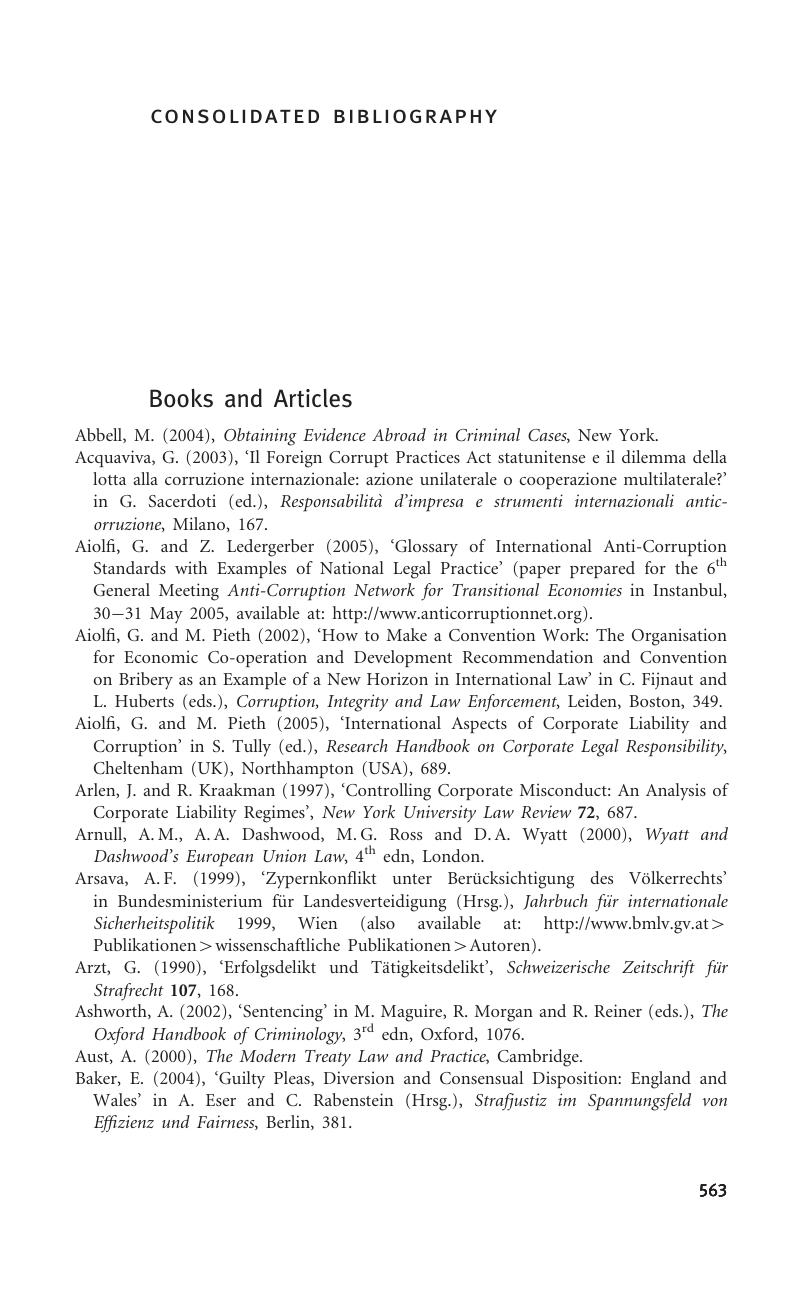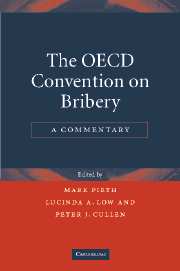Book contents
- Frontmatter
- Contents
- Notes on Contributors
- Preface
- Acknowledgements
- List of Abbreviations
- Official Documents
- PART I INTRODUCTION
- PART II COMMENTARY
- PART III THE CONVENTION IN PRACTICE
- Annex: Table of Applicable Sanctions in the Twenty-One Parties Reviewed in the Mid-Term Study
- Consolidated Bibliography
- Index
- References
Consolidated Bibliography
Published online by Cambridge University Press: 06 July 2010
- Frontmatter
- Contents
- Notes on Contributors
- Preface
- Acknowledgements
- List of Abbreviations
- Official Documents
- PART I INTRODUCTION
- PART II COMMENTARY
- PART III THE CONVENTION IN PRACTICE
- Annex: Table of Applicable Sanctions in the Twenty-One Parties Reviewed in the Mid-Term Study
- Consolidated Bibliography
- Index
- References
Summary

- Type
- Chapter
- Information
- The OECD Convention on BriberyA Commentary, pp. 563 - 584Publisher: Cambridge University PressPrint publication year: 2007



